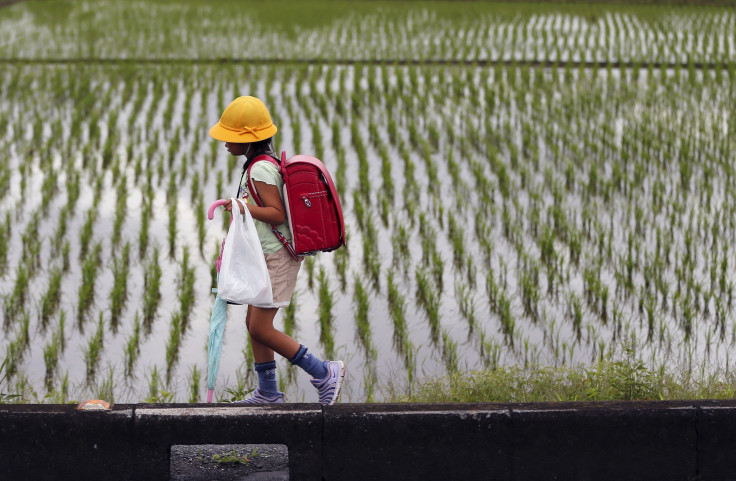Japan School Children Suicides: After Vacation, Many Young Students Kill Themselves, Study Finds

A significant number of Japanese children commit suicide as they return to school from summer and spring vacations, a government study has found. The largest number of children, defined as those under the age of 18, killed themselves on Sept. 1, the day that many schools reopen.
The study, carried out by the Cabinet Office and based on government population data, looked at 18,048 child suicides from 1972 to 2013. It found clusters of suicides at the end of August and beginning of September, as well as mid-April dates marking the end of spring break. Officials called for extra attention to be paid to children during these periods.
“During vacations, when it is hard for teachers to observe children, families should pay careful attention to their behavior and look out for changes in their appearance or health,” an Education Ministry official said, the Japan Times reported.
On Sept. 1 over the 42 years, 131 children committed suicide. On Sept. 2, 94 did, while 94 child suicides also took place Aug. 31, the study found. The study counted 99 suicides on April 11 and 95 on April 8. Those numbers were significantly higher than such deaths throughout summer months.
Japan's overall suicide rate is about 60 percent higher than the world average, a 2014 World Health Organization report found, with about 18.5 people out of 100,000 committing suicide in 2012. The unusually high rate has garnered Japan both notoriety and fascination, drawing questions about why suicide is accepted as a solution to apparently intractable problems. In fact, suicide is the leading cause of death among men aged 20 to 44 in Japan.
In 2014, Japanese officials unveiled a series of measures aimed at cutting the suicide rate by 20 percent over the next decade, even as some Japanese still regard suicide as "the ultimate expression of atonement," the Guardian reported at the time. Meanwhile, the country has struggled to implement strategies, such as increasing nationwide discussion of mental health issues, that could reduce the rate of people taking their own lives.
The issue of youngsters killing themselves has triggered particular alarm in recent years in Japan. In 2007, the number of student suicides rose even as suicides among the general population decreased, the National Police Agency said. That year, suicides among elementary school students doubled. Officials cited school-related problems, especially bullying, as being at least partially responsible.
One in 12 elementary school children in Japan suffers from depression, a rate that rises to one in four among junior high students, research by Kenzo Denda, a professor at Hokkaido University, one of Japan's national universities, has shown.
© Copyright IBTimes 2024. All rights reserved.





















